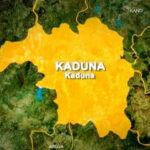
The Central Bank of Nigeria has invested heavily in the agricultural sector in the last eight years to reduce food imports. The smuggling of agricultural products has persisted despite these efforts. In this article, ANOZIE EGOLE delves into the issue of smuggling of agricultural products in Nigeria and looks at ways to tackle this challenge
At the inception of this current administration in 2015, the Central Bank of Nigeria, in a bid to reduce the importation of agricultural products, established the Anchor Borrowers’ Programme to create economic linkages between smallholder farmers and reputable companies (anchors) involved in the production and processing of key.
The apex bank claimed that the country spent about $5.03bn on food importation in 2014 alone. So, the Anchor Borrowers’ Programme was also established to reduce the country’s foreign exchange utilisation for food and ensure food sufficiency by providing the needed incentives to farmers in other to boost local production.
The President, Maj. Gen. Muhammadu Buhari (retd) while speaking during the launch of the ABP and flag-off of the 2015 dry season farming season in Birnin-Kebbi, Kebbi State in 2015, frowned at the huge sums the country spent on the importation of food items that could be produced locally, stressing that the N1tn importation bill was not sustainable.
The President argued that agriculture had been the mainstay of the country’s economy in the past, and the current reality in the global oil market left Nigeria with no option than to diversify into other productive sectors.
The CBN Governor, Dr Godwin Emefiele, disclosed earlier this year that a total of N1.09tn had been disbursed through the Anchor Borrowers’ Programme since its inception in 2015.
According to him, the apex bank has disbursed N12.65bn to farmers under the ABP in the first two months of this year.
He further explained that 4.6 million smallholder farmers cultivating 21 agricultural commodities have benefitted from the programme so far.
Emefiele said the CBN also released the sum of N23.70bn under the N1tn real sector facilities to eight new real sector projects in agriculture, manufacturing, and services.
“Cumulative disbursements under the real sector facility currently stands at N2.43tn disbursed to 462 projects across the country, comprising 257 manufacturing, 95 agriculture, 97 services and 13 mining sector projects,” he said.
However, despite the huge investment the government through the CBN has made in the agricultural sector to boost local food production, the smuggling of agricultural products has continued to thrive in the country.
The PUNCH investigation showed that for every seized contraband made by the Nigeria Customs Service, agricultural products including bags of foreign rice, vegetable oil, and frozen foods still top the list.
A document obtained by The PUNCH from the Public Relations Officer Zone A of the Nigeria Customs Service, Peter Duniya, showed that a total of 93, 822 bags of foreign rice with duty paid value of N5.4bn were seized between January to December 2022.
Stakeholders have wondered that if only one command in Lagos out of the many commands in the state could record that such quantity of seizure of agricultural products, the total figure of seizures in the entire country would be mind-boggling.
This has made them question the impact of the Anchor Borrowers’ Programme, which has gulped N1.09tn in the last eight years.
The Customs have blamed Nigerians, who are bent on frustrating the government efforts to boost local food production, as one of the reasons smuggling of agricultural products has festered.
The Customs have explained that smugglers employ means various means ranging from ferrying these commodities with cars, motorcycles, among others, from neighboring countries into the country.
Some even go to the extent of packaging these products in gallons, fuel tankers in an attempt to escape the eyes of the security agencies at the border.
Though some were intercepted, so many escaped unnoticed into the Nigerian market as the security agencies involved in guarding these borders have over the years been accused of compromise.
Meanwhile, some have argued that smuggling of agricultural products such rice has continued to thrive because local products were still not competitive.
For stance, energy costs and taxes have made foreign rice cheaper than locally produced ones.
Farmers have also claimed that Nigerians still have unbridled appetite for foreign goods, which was one of the reasons smuggling of agricultural produce was on the increase in the country.
Insufficient local of agro-products has also been identified as reason for the thriving smuggling of these products.
A political economist, Prof Pat Utomi, told our correspondent in an interview that the country had a huge appetite for imports because of insufficient domestic production driven by worsening insecurity and stringent government regulations.
He said, “You will notice that Nigeria’s top imports which are food products and motor spirits are things that we should be exporting because we are a food-producing nation and we have oil in abundance. This is scandalous.
“But the reason this is so is simple. Firstly, access to farms is problematic. I am in the agriculture value chain business and farmers say to us ‘We can’t supply to you, because we are afraid to go to our farms’. So, insecurity contributes significantly to poor farm output. Beyond insecurity, government regulations and policies also hinder production in various sectors.”
Also, in a chat with our correspondent, the President of the Nigerian Association of Chambers of Commerce, Industry, Mines, and Agriculture, John Udeagbala attributed the imports of the items to a shortfall in local production.
He said, “Apart from being the president of NACCIMA, I am in palm oil trade. I have a vegetable oil refinery. We don’t have enough in the country. My plant cannot run 24 hours for one week because we don’t have enough raw materials. There is a shortage. If there is no demand, there won’t be any supply.”
The National President of the All Farmers Association of Nigeria, Kabir Ibrahim, urged the Federal Government and Customs to impose death penalty on smugglers to dissuade Nigerians from engaging in the nefarious act.
“Nigerians are not very patriotic. If a smuggler is arrested, he is supposed to face death penalty to deter others because that is what they are doing in China. So, you cannot bring anything illegally. If you import it legally, it would not be seized. If these quantities have been seized by Customs that means it is illegal, either there is banned on it or it came through unapproved route.
“Even in Katsina, our border with the Niger Republic, there are many unscrupulous people that are smuggling rice into Nigeria.”
Ibrahim advised the Federal Government to extend the enforcement to the sellers of the products.
“So, what I will do if I was in charge of Customs or in charge of enforcement, I will not even spare the people who are selling them in the shops because how did it get to the shops. If you start seizing them from the shops, that means there would not be any buyer. Those smugglers will not see anyone to buy from them. But once you are treating the matter with leniency, we will continue to have these problems. I am surprised that such a quantity of rice can be seized from a unit. I now imagine what it will look like if you look at the different Customs commands across the country,” he declared.
Also, the Chairman of AFAN South West Zone, Dr Femi Oke, said, “The only thing I think the government can do is to keep encouraging farmers so that it can reduce. We hope with the new government coming onboard things will normalise. The smuggled rice has to be seized and the local farmers must be encouraged.”
A motorcyclist, Mr Orji Ike, who specialises in conveying passengers across the border in Seme, had in a recent interview with our correspondent admitted that the business of smuggling was booming since the reopening of the land borders.
“The business of smuggling is booming now unlike before. During the border closure, it reduced as people were being careful not to be caught. Now, people freely go to Cotonou to buy banned goods and come in and nobody disturbs them.
“If you want to buy cannabis sativa, I will take you across and when you are done, call me I will come and pick you. Nobody will disturb you. But that one comes with extra charges”
However, the Seme Chapter Chairman of the Association of Nigerian Licensed Customs Agents, Lasisi Fanu, said it was now more expensive to bring in goods through the border than through the seaports.
He said members of the association spent a minimum of N1.8m to clear a 40-foot container and N1.3m to clear a 20-foot container, adding that the government had stopped informal trade, which was affecting their businesses drastically.
Fanu stated, “There has not been any change since they reopened the border. The border was reopened in 2020 and nothing drastically has changed. The clearing procedure in Cotonou still remains the same. It has been N1.8m to clear 40-foot and N1.3m for 20-foot containers.
“Before now, we used trucks to load goods from Cotonou directly. So, you can combine more than one container in a truck and move it as one, because it was an informal trade then. But before they reopen the border, they said the informal trade must stop and it has stopped. They said the goods must move into Nigeria in their original forms, which are containerised and it must be received by the Nigeria Customs Service before you can open the container.”
According to him, this policy has also encouraged smuggling of agro-products, especially rice, still thrive.





